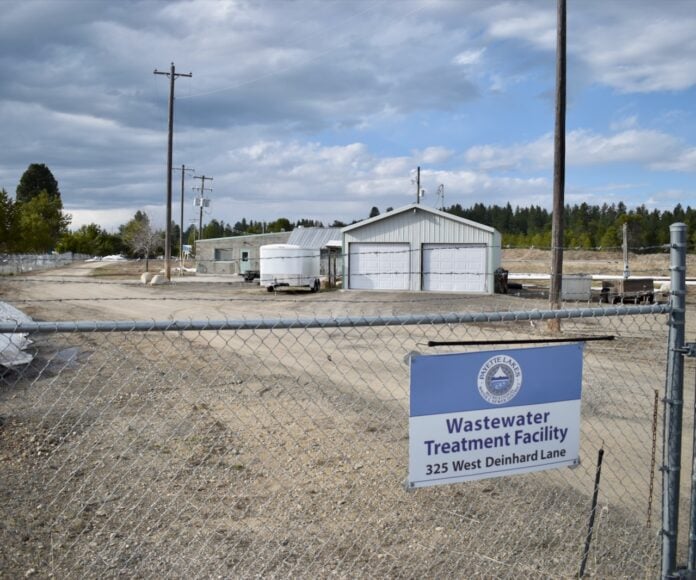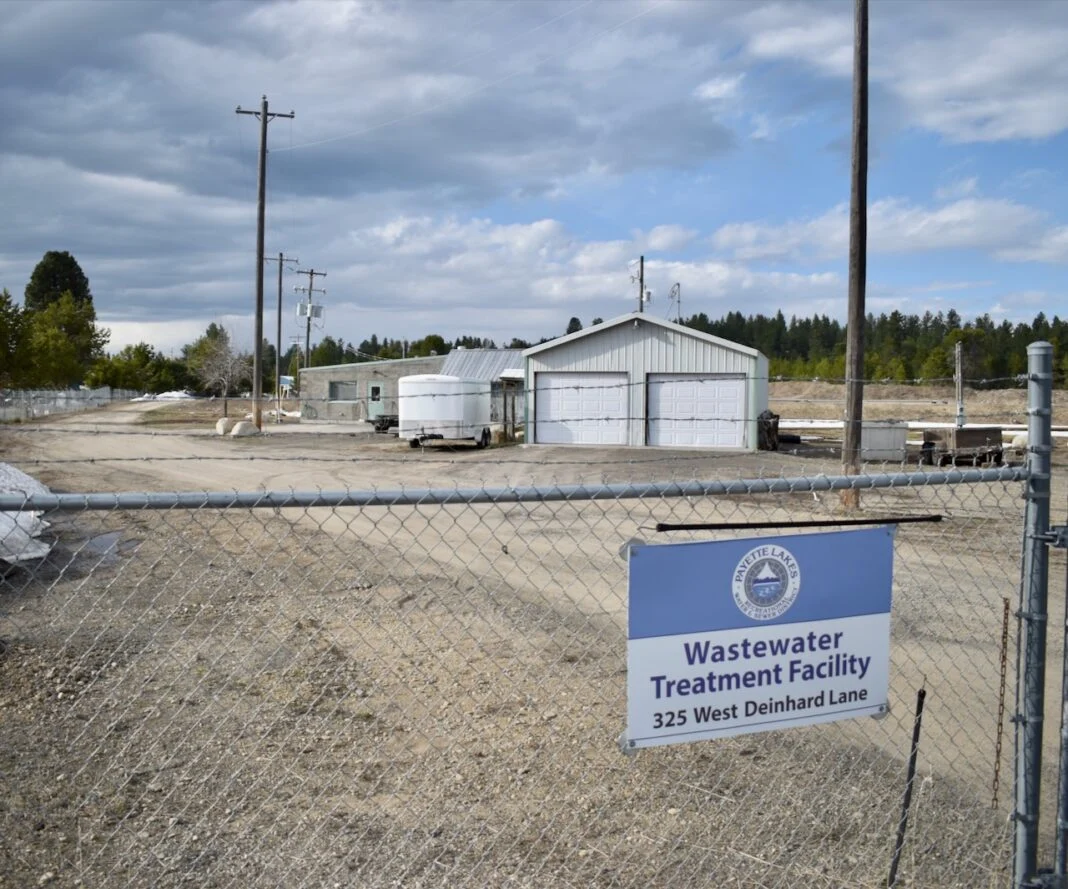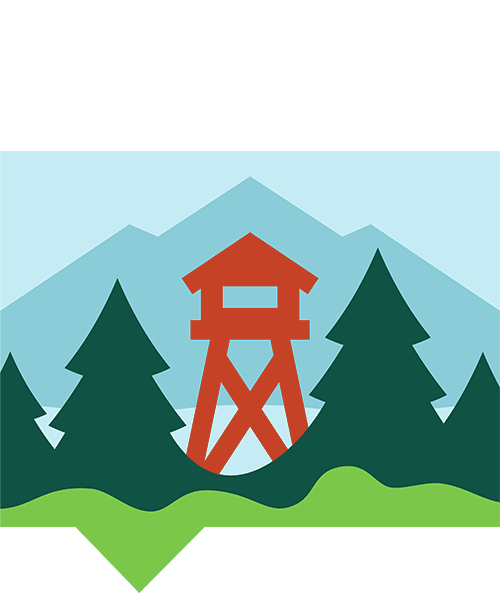In May, McCall voters will be asked to approve a $7 million bond issue that would raise monthly sewer bills by about 25% to fund work at the wastewater treatment plant.
The alternative, however, would likely be rate increases of as much as 100%, or double current monthly bills, to pay for the work, according to the Payette Lakes Recreational Water and Sewer District.
Those financial realities were aired by the sewer district on Wednesday during an open house ahead of a May 20 vote on the bond proposal. A second open house will be held at the district’s office on May 12 from 5 p.m. to 7 p.m.
A simple majority of voters, or 50% plus one, must be in favor of the $7 million bond for it to be approved. The bound would be re-paid over 20 years with debt payments added to monthly sewer bills.
The $7 million would mainly be used to replace aging and failing infrastructure at the wastewater treatment plant on Deinhard Lane. Some of the work is required by the Idaho Department of Environmental Quality.
“These projects have to get done,” said Jeff Bateman, who manages the sewer district. “All the projects associated with the bond need to be completed regardless of growth.”
Overall, the work is expected to cost $11 million, some of which will be paid for using district funds and grants.
Pond liner replacement
The main project involves replacing a leaking liner on a 268-million-gallon storage pond on the south side of Deinhard Lane.
The pond stores wastewater after it has been treated in a series of three treatment ponds on the north side of Deinhard Lane. The treated wastewater is pumped to farmland south of McCall and used for irrigation in what is known as the district’s re-use system.
“It is treated water,” David Watkins of JUB Engineers, the district’s contract engineer firm, said of the leaking liner. “It is not raw sewage, it’s not raw wastewater.”
The leaks are collected into a drain system beneath the pond that also collects natural groundwater. The water then pours out of a pipe into wetlands near the North Fork Payette River.
In total, the underdrain discharges between 17 million to 20 million gallons of water per year, though it is unknown how much of that is groundwater, Watkins said.
Without donors like you, this story would not exist.
Make a donation of any size here
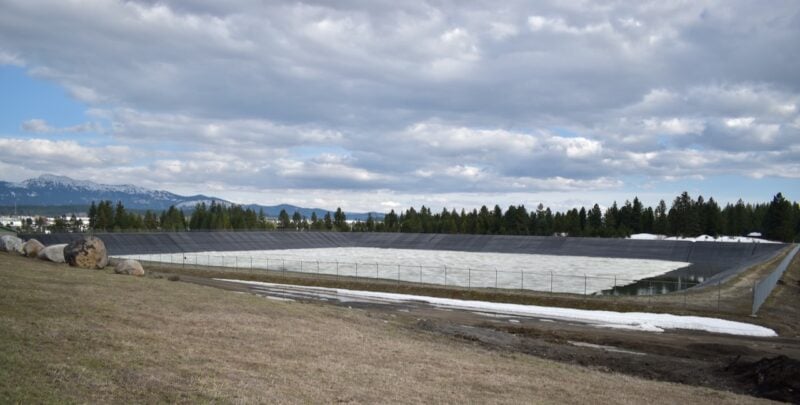
Phosphorus and nitrates are the main pollutants associated with treated wastewater. The nutrients act as fertilizer on the farmland where the wastewater is used to irrigate, but in the river can fuel toxic algal blooms on Lake Cascade.
The district is required by DEQ to fix the leak, but Watkins does not expect it to significantly benefit Lake Cascade. He estimated the pond’s underdrain currently contributes less than 1% of the phosphorus in the lake.
“There’s a good chance we fix the liner and they don’t notice a difference,” he said.
Phosphorus offsets
The district is also required by DEQ to complete other work to secure phosphorus “offsets” for the pond’s underdrain system.
The offsets would grant the district a set amount of phosphorus that can legally be discharged to the river each year in exchange for completing work that reduces phosphorus.
Currently, the system does not have any offsets under permits issued by DEQ that allowed the city to build the pond in 2001.
Without the offsets, it is impossible for the district to comply with DEQ standards because phosphorus is present in groundwater upgradient from the drain system, Watkins said.
“Even if the district fixes the liner, it would still be non-compliant,” he said.
The district is currently negotiating the offset with DEQ, but the bond includes $1.8 million to fund whatever work is agreed upon.
That could include extending central sewer service to about 30 existing homes and additional lots in McCall’s Rio Vista Neighborhood that currently use septic systems, or building fences to keep cattle away from water sources, among other projects.
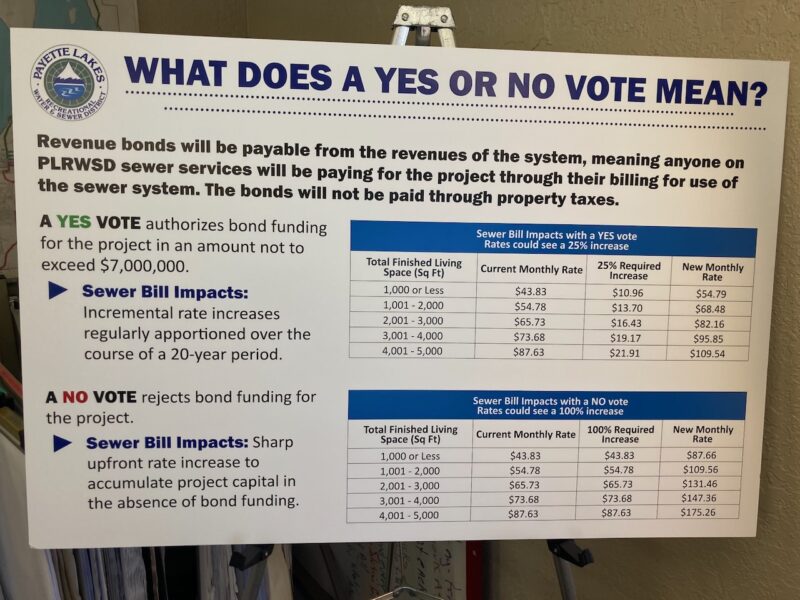
Other treatment plant work
The bond would also fund the replacement of aging equipment at the wastewater treatment plant on the north side of Deinhard Lane.
That includes replacing an aeration system that feeds oxygen into a series of three treatment ponds on the north side of Deinhard Lanes. The oxygen feeds bacteria that breaks down solid waste. That system is currently as much as 50 years old and has been failing in recent years.
Sludge accumulated at the bottom of two of the ponds would also be removed as part of the work, improving capacity and the efficiency of the treatment process.
The sewer district took control of the treatment plant in 2017 from the City of McCall following a consolidation vote. The former city sewer system was also absorbed into the district.
The treatment plant work funded by the bond was identified in a master plan completed for the combined sewer system. The master plan was adopted by the district’s board of directors on Wednesday.




